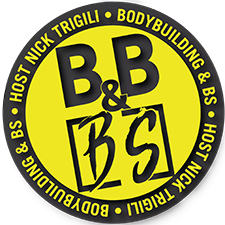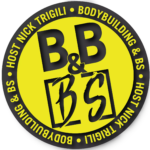In the fast-paced world of fitness and wellness, where social media platforms serve as stages for influencers to showcase their chiseled physiques and seemingly attainable lifestyles, one name that has risen to prominence is Alex Eubank. Boasting a massive following, Eubank has garnered significant attention and admiration for his achievements within the fitness industry. However, beneath the surface of his success lies a controversial topic that continues to spark debates and skepticism – his claims of natural athleticism.
For those who have even a passing interest in the fitness realm, Alex Eubank’s name is likely to ring a bell. His journey from obscurity to becoming a notable fitness influencer has been impressive, and his early accomplishments in his career are undeniably praiseworthy. But amidst the accolades and endorsements, there’s a nagging concern that has left many wondering about the authenticity of his claims.
Central to this concern is Eubank’s assertion that he achieved his impressive physique without the aid of performance-enhancing substances, commonly known as steroids. In a culture where transparency and authenticity are highly valued, Eubank’s statements have drawn both admiration and skepticism. While some applaud his commitment to natural fitness and applaud his dedication, others question whether such rapid transformations are truly possible without external assistance.
One of the factors that have contributed to the skepticism surrounding Eubank’s claims is the widespread use of performance-enhancing substances within the fitness industry. Steroids, in particular, have been a subject of controversy for years, with their potentially harmful side effects and ethical implications. The pressure to achieve and maintain a certain physical appearance, coupled with the allure of rapid results, has led many individuals down the path of using these substances, whether openly or in secrecy.
Eubank’s transparency about potentially considering steroid use in the future has only fueled the fire. Some argue that this transparency adds a layer of authenticity to his claims of natural fitness, as he openly acknowledges the possibility of a shift in his approach. Others, however, view this as a calculated move, a way to preemptively address any accusations while maintaining a veneer of honesty.
The broader issue at play here is not solely about Alex Eubank’s individual journey but rather the larger landscape of fitness influencers and the responsibility they hold. With their platforms, these individuals wield considerable influence over their audiences. People look up to them for guidance, inspiration, and even emulation. Therefore, the claims they make and the lifestyles they present have a far-reaching impact, influencing the decisions and aspirations of countless individuals who strive for similar results.
As consumers of content, it’s crucial to approach the narratives of fitness influencers with a critical yet open mind. The fitness industry is diverse, and what works for one person might not work for another. Unrealistic expectations and misleading claims can lead to disappointment, frustration, and even harm. It’s essential to prioritize health, sustainability, and wellbeing over the pursuit of an idealized aesthetic.
In conclusion, the story of Alex Eubank sheds light on the multifaceted world of fitness influencers and the complex relationship they have with their audiences. While his achievements and journey are noteworthy, the question of his natural athleticism underscores broader concerns about authenticity, transparency, and the impact of influencer culture. As consumers, it’s up to us to engage critically, seek credible information, and remember that the journey towards health and fitness is unique for each individual, and it’s not solely defined by external appearances or rapid transformations.







